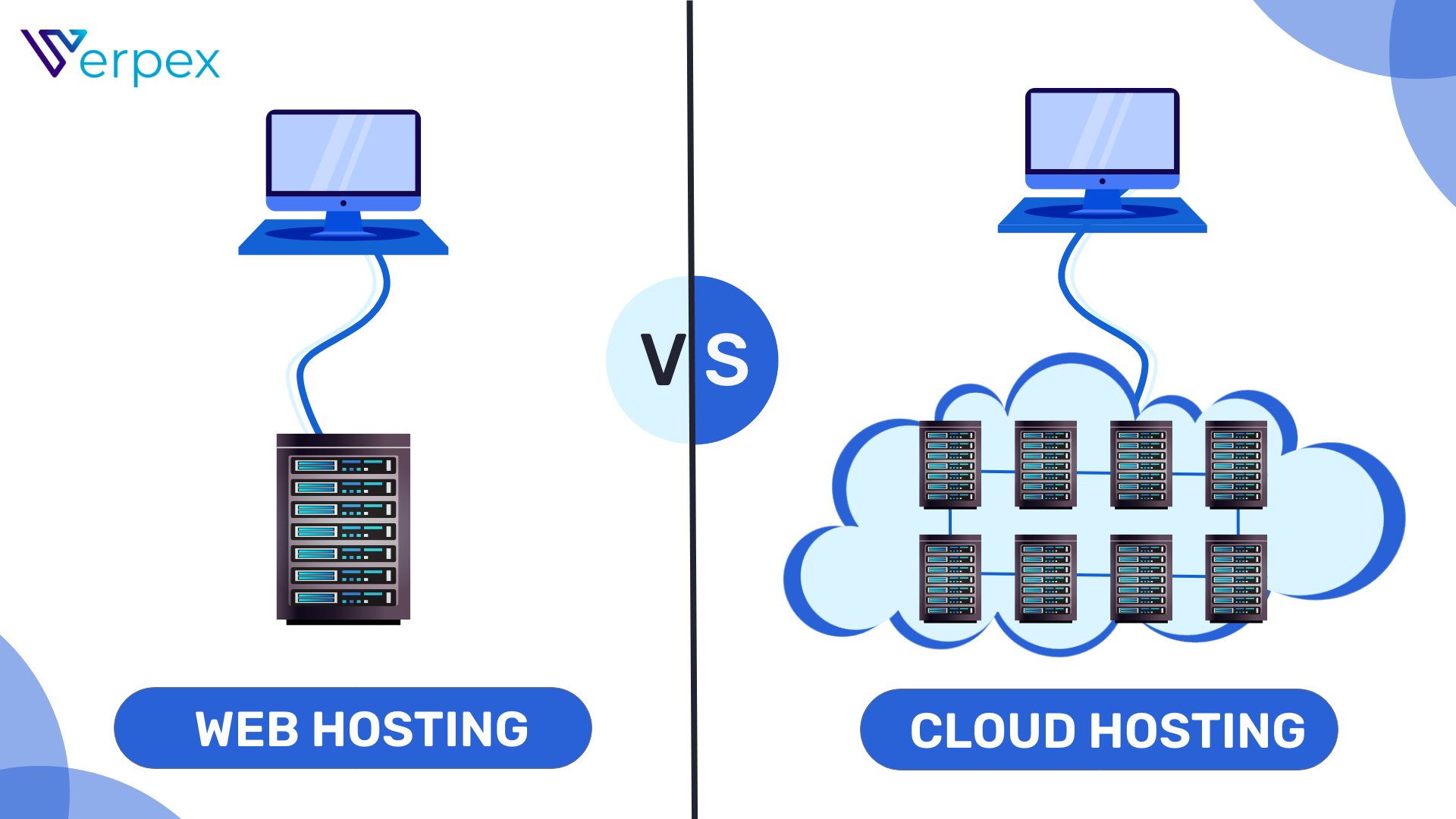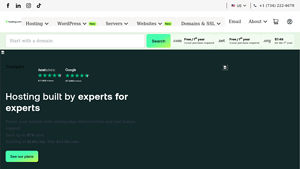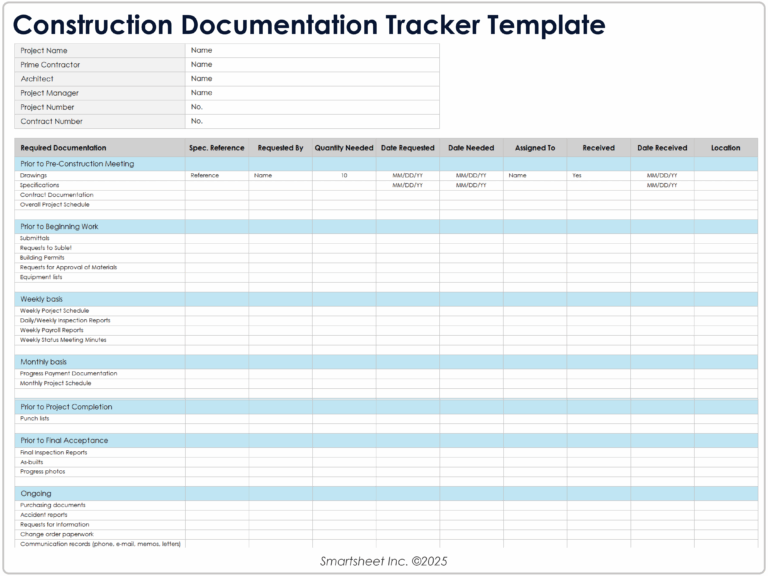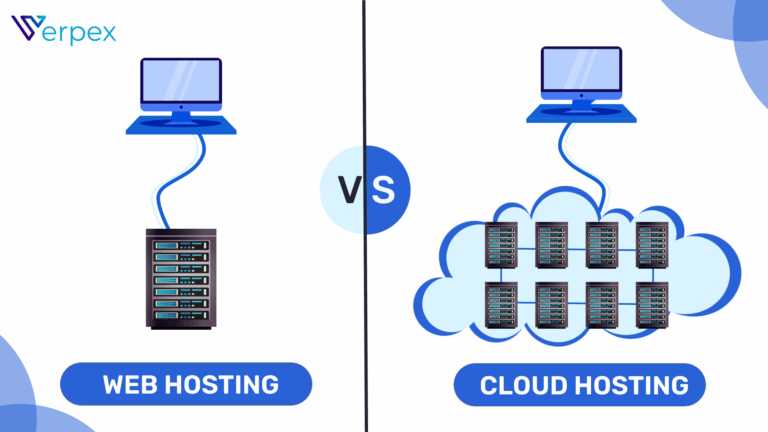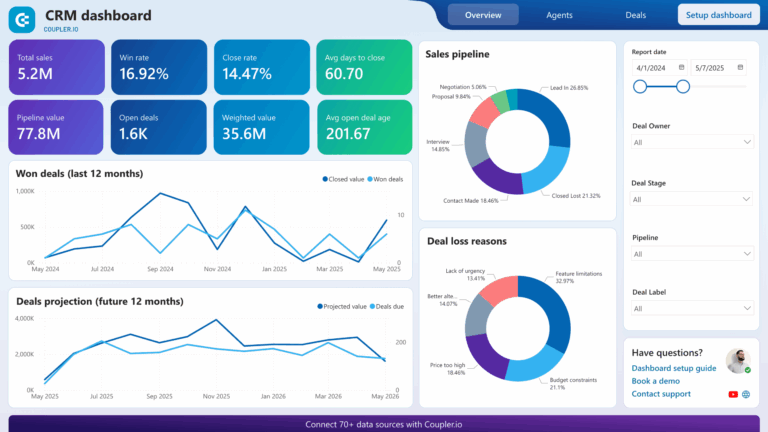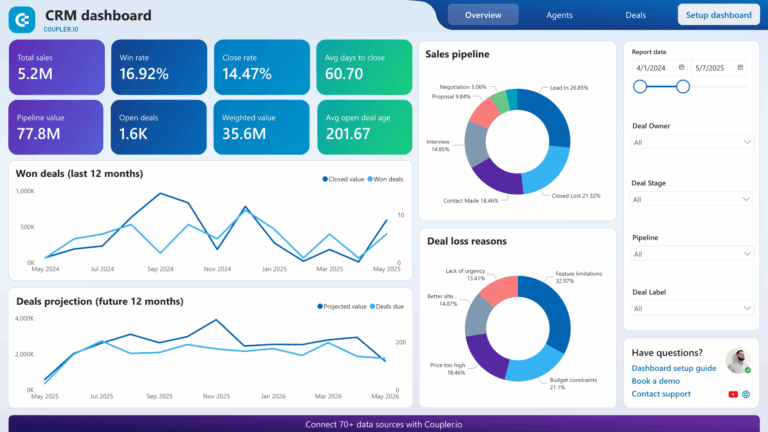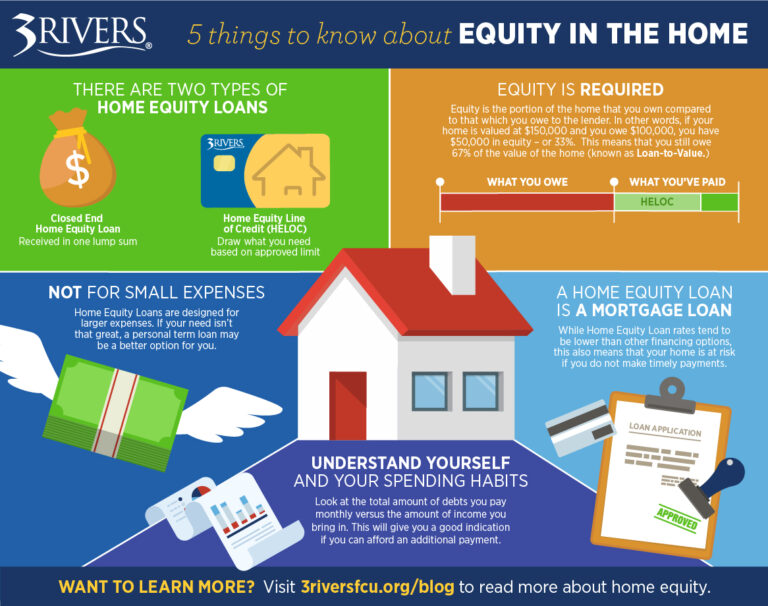Choosing a Domains & Hosting Provider: Our Top Picks for 2025
Choosing Your Digital Home: An Introduction to Web Hosting
Choosing the right web hosting is a critical foundation for any successful website. Whether you’re a small business owner, a passionate blogger, a budding developer, or simply someone with a creative idea, the web hosting service you select can significantly impact your online presence. With the vast array of options available today, it’s common for users to feel overwhelmed. From shared hosting to dedicated servers, and everything in between, navigating the myriad choices can be confusing.
Understanding the Importance of Web Hosting
Web hosting is essentially the backbone of your website. It determines how quickly your site loads, how secure it is, and even how reliable it is during peak traffic times. A poor hosting choice can lead to slow loading speeds, frequent downtimes, and inadequate security measures, which can frustrate users and drive potential customers away. On the other hand, a reliable hosting service can enhance user experience, improve SEO rankings, and provide the scalability needed as your website grows.
The Challenge of Choosing the Right Provider
With so many web hosting providers offering a variety of plans, features, and pricing structures, making an informed choice can feel like a daunting task. Some services cater specifically to WordPress users, while others might be better suited for e-commerce sites or general blogging. Furthermore, the pricing often varies significantly, with enticing introductory offers that can lead to confusion over renewal rates. This guide aims to demystify the world of web hosting, helping you understand the different types available and the key factors to consider when selecting a host.
Your Comprehensive Resource
The goal of this guide is to serve as a one-stop resource for anyone looking to understand web hosting. We will break down the various hosting types, such as shared, VPS, cloud, and dedicated hosting, highlighting their pros and cons to help you assess which is best for your needs. Additionally, we will compare top providers based on essential criteria like performance, security, customer support, and pricing, enabling you to make an informed decision.
By the end of this guide, you’ll have a clearer understanding of web hosting and the confidence to choose a provider that meets your specific needs. Whether you’re just starting or looking to switch hosts, we’re here to help you find your digital home.
The Best Domains & Hosting Providers of 2025
5. Bluehost – Top Choice for Reliability and Support!
The “Best Hosting Reddit Guide” offers valuable insights for users seeking optimal web hosting solutions, particularly for WordPress and various other website types. Highlighting reputable providers like A2 Hosting, Bluehost, SiteGround, and GreenGeeks, the guide emphasizes features such as performance, reliability, and affordability. Ideal for beginners and experienced developers alike, it serves as a comprehensive resource for selecting the right hosting service tailored to diverse needs.
- Website: reddit.com
- Company Age: Approx. 20 years (domain registered in 2005)
5. Bluehost – Top Choice for WordPress Hosting
In CNET’s review of the best web hosting services for 2025, SiteGround emerges as the top choice, particularly for WordPress users. It offers a user-friendly interface and powerful tools tailored for both beginners and experienced developers. Additionally, SiteGround is recognized for its robust security measures, ensuring a safe hosting environment, making it an ideal option for those prioritizing performance and reliability in their web hosting needs.
- Website: cnet.com
- Company Age: Approx. 31 years (domain registered in 1994)
5. Bluehost – Your All-in-One Solution for Web Hosting and Domains!
Bluehost is a highly-rated web hosting provider known for its reliable and affordable hosting plans, making it an ideal choice for beginners and small businesses. It offers a range of services, including domain registration and specialized WordPress hosting, complemented by user-friendly tools and a robust support system available 24/7. With its strong performance and competitive pricing, Bluehost caters to users looking to establish a solid online presence.
- Website: bluehost.com
- Company Age: Approx. 23 years (domain registered in 2002)
5. Hostinger – Speed Meets Security for Your Website!
Hostinger is an exceptional web hosting provider, recognized for its impressive performance and security features, making it ideal for both beginners and experienced users. With a focus on affordability, it offers competitive pricing and a variety of plans, including optimized options for WordPress hosting. Its robust infrastructure ensures fast loading times and reliable uptime, solidifying Hostinger as a top choice for those seeking a dependable and cost-effective hosting solution.
- Website: hostinger.com
- Company Age: Approx. 23 years (domain registered in 2002)
20. Hosting.com – Unmatched Speed for Your Website!
Hosting.com offers top-tier web hosting services designed for speed and reliability, boasting performance enhancements that can deliver up to 20x faster load times. With premium hardware and 24/7/365 global support, it caters to businesses seeking robust solutions for their online presence. Additionally, the risk-free money-back guarantee allows users to test the service without commitment, making it an appealing choice for those prioritizing performance and support.
- Website: hosting.com
- Company Age: Approx. 29 years (domain registered in 1996)
7. Bluehost – Ultimate Choice for Managing Multiple Domains!
In the review article “7 Best: Hosting for Multiple Domains (2025)” from HostingAdvice.com, readers will discover top hosting providers ideal for managing multiple domains efficiently. Highlighting features like Hostinger’s industry-low domain prices, free registration on most plans, and the ability to host up to 100 domains, the article targets webmasters and businesses looking for cost-effective, flexible hosting solutions that don’t compromise on performance or scalability.
- Website: hostingadvice.com
- Company Age: Approx. 21 years (domain registered in 2004)
What is Web Hosting? A Plain English Guide
Web hosting is an essential service that allows individuals and businesses to publish a website on the internet. To understand web hosting better, think of it as renting a space for a house where you can display all your belongings. In this analogy, the house is your website, and the space you rent is the server provided by a web hosting company.
What is a Server?
A server is a powerful computer that stores your website’s files, data, and content. Just like a physical house has rooms to hold your furniture, clothes, and personal items, a server has storage to hold your website’s images, videos, text, and more. When someone wants to visit your website, their computer sends a request to the server where your site is hosted. The server then retrieves the necessary files and sends them back to the visitor’s computer so they can view your site.
Servers are always connected to the internet, allowing users from anywhere in the world to access your website anytime. There are different types of servers, each serving various needs. For example, shared hosting means your website shares server space with many other sites, while dedicated hosting gives you an entire server just for your website. This can be likened to living in an apartment complex (shared hosting) versus owning a standalone house (dedicated hosting). Each option has its advantages and disadvantages, depending on your website’s requirements.
How Do Domains and Hosting Connect?
To make your website accessible, you also need a domain name, which is like the address of your house. Just as you need a specific address to receive visitors at your home, your website needs a unique domain name (like www.yourbusiness.com) for people to find it online.
When someone types your domain name into their web browser, it translates that name into an IP address, which is a numerical label assigned to each device connected to a computer network. This IP address helps the browser locate your server on the internet, just like using a GPS to find your home. Once the browser reaches your server, it requests the files associated with your domain name, allowing users to view your website.
To summarize, the domain name is the address that directs visitors to your website, while web hosting is the service that provides the space and resources to store your website’s files and make them accessible to the public.
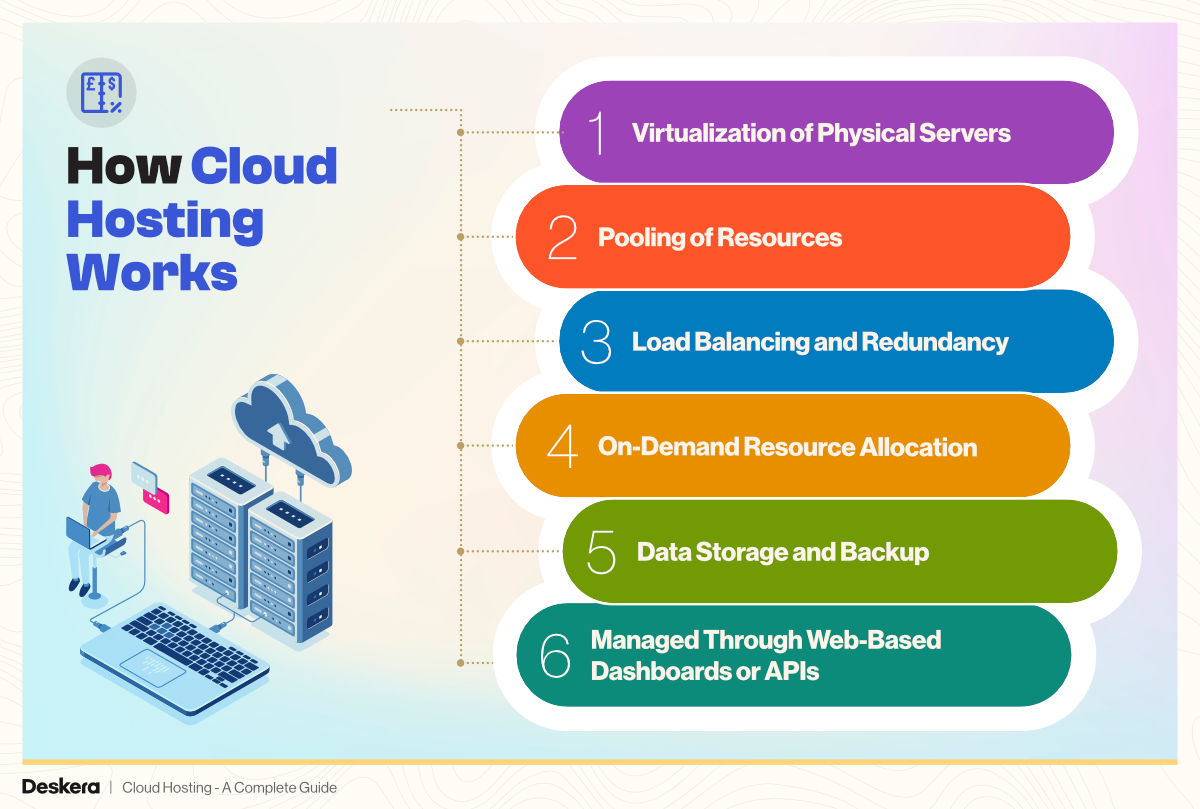
Why Do I Need a Hosting Service?
If you want to create a website, you need a hosting service for several reasons:
-
Accessibility: A hosting service ensures that your website is always accessible to users around the clock. Without hosting, your website would be like a house without a foundation; it simply wouldn’t exist online.
-
Storage: Hosting services provide the storage space needed for your website’s files, including text, images, and videos. The amount of storage you need depends on the size and complexity of your website. For instance, a simple blog may require less storage than an e-commerce site that sells products and features high-resolution images.
-
Performance: A quality hosting service can significantly impact your website’s performance. Fast loading times are crucial for user experience, as visitors are likely to leave if a site takes too long to load. Reliable web hosting ensures that your site runs smoothly and efficiently.
-
Security: Hosting services often provide security features to protect your website from threats, such as hacking attempts or malware. This is akin to having a security system for your house to keep your belongings safe.

-
Support: Most hosting providers offer customer support to help you troubleshoot issues or answer questions about your website. This is like having a property manager who can assist you with any problems related to your rented space.
-
Scalability: As your website grows, you may need more resources. A good hosting service allows you to upgrade your plan or move to a more powerful server without experiencing downtime, similar to being able to expand or move to a bigger house as your family grows.
In conclusion, web hosting is a fundamental service that provides the necessary infrastructure for your website to exist and thrive on the internet. By understanding how hosting, domains, and servers work together, you can make informed decisions about the best hosting options for your needs, ensuring your website is accessible, secure, and efficient.
Types of Web Hosting: A Detailed Comparison
| Hosting Type | Best For | Performance | Price Range | Key Pro | Key Con |
|---|---|---|---|---|---|
| Shared Hosting | Beginners, small websites, blogs | Moderate; shared resources | $2 – $10/month | Cost-effective and easy to use | Limited resources; slower performance |
| VPS Hosting | Growing websites, small businesses | High; dedicated resources | $20 – $100/month | More control and customization | More expensive than shared hosting |
| Dedicated Server Hosting | Large businesses, high-traffic sites | Very high; all resources dedicated | $80 – $540/month | Full control over server | Expensive; requires technical expertise |
| Cloud Hosting | Scalable sites, e-commerce platforms | High; resource flexibility | $10 – $300/month | Scalability and reliability | Can be complex to manage |
| Managed WordPress Hosting | WordPress users, bloggers | High; optimized for WordPress | $10 – $50/month | Hassle-free management and maintenance | Higher cost than standard shared hosting |
Shared Hosting
What It Is:
Shared hosting is the most basic type of web hosting, where multiple websites are hosted on a single server. Each website shares the server’s resources, including CPU, RAM, and disk space. This setup makes it an economical option for individuals or businesses just starting out.
Who Should Use It:
Shared hosting is ideal for beginners, personal blogs, small business websites, or any site with low to moderate traffic. If you’re just getting started and your primary goal is to establish an online presence without incurring high costs, shared hosting can be a suitable choice.
Pros:
– Affordability: The cost of shared hosting is generally low, making it accessible for small businesses and individuals.
– Ease of Use: Most providers offer user-friendly interfaces and one-click installations for popular content management systems (CMS) like WordPress.
– Maintenance: The hosting provider handles server maintenance and security, allowing users to focus on their website content.
Cons:
– Limited Resources: Since resources are shared, your website’s performance can be affected by other sites on the same server, leading to slower load times during peak traffic.
– Less Control: Users have limited access to server configurations and settings, which can restrict customizations.
– Security Risks: If one website on the server is compromised, it can potentially affect all other sites sharing the same server.
VPS Hosting
What It Is:
Virtual Private Server (VPS) hosting provides a more advanced level of hosting compared to shared hosting. In this setup, a single physical server is partitioned into multiple virtual servers, each with its own dedicated resources. This allows for greater control and performance.
Who Should Use It:
VPS hosting is suitable for growing websites, small to medium-sized businesses, and developers who need more control over their server environment. If your website is experiencing increased traffic and you require better performance, VPS hosting can be a great option.
Pros:
– Enhanced Performance: With dedicated resources, your website can handle more traffic and run faster than on shared hosting.
– Greater Control: Users have more control over their server settings and configurations, allowing for custom software installations.
– Scalability: VPS hosting can be easily scaled up to accommodate traffic growth without significant downtime.
Cons:
– Higher Costs: VPS hosting is more expensive than shared hosting, which may be a consideration for budget-conscious users.
– Technical Knowledge Required: Users may need some technical expertise to manage their VPS effectively, including server management and security.
Dedicated Server Hosting
What It Is:
Dedicated server hosting involves renting an entire server dedicated solely to your website. This type of hosting provides maximum performance, security, and control, as no other websites share the server’s resources.
Who Should Use It:
This type of hosting is best for large businesses, high-traffic websites, and those with specific server requirements. If your website demands high performance and you need full control over the server environment, dedicated hosting is the right choice.
Pros:
– Full Control: You have complete control over the server’s configurations, allowing for custom setups and installations.
– High Performance: With all resources dedicated to your website, performance is optimal, even during high traffic periods.
– Enhanced Security: Dedicated servers offer improved security measures, reducing the risk of attacks.
Cons:
– High Cost: This is one of the most expensive hosting options available, making it less feasible for small businesses or individual users.
– Management Complexity: Managing a dedicated server requires technical expertise, which can be a barrier for some users.
Cloud Hosting
What It Is:
Cloud hosting uses a network of virtual servers hosted in the cloud, allowing for resource allocation across multiple servers. This setup enables websites to draw resources from various servers, ensuring high availability and scalability.
Who Should Use It:
Cloud hosting is ideal for businesses that experience fluctuating traffic levels or require scalable solutions, such as e-commerce platforms or websites with seasonal traffic spikes.
Pros:
– Scalability: Resources can be adjusted on-the-fly to meet traffic demands, making it perfect for businesses with variable traffic.
– Reliability: If one server goes down, your website can continue to operate using resources from other servers in the cloud.
– Pay-as-You-Go Pricing: Many cloud hosting providers offer flexible pricing models based on actual resource usage.
Cons:
– Complex Management: Managing cloud hosting can be complex, especially for users without technical expertise.
– Variable Costs: While you can save money during low traffic periods, costs can increase significantly during high traffic times.
Managed WordPress Hosting
What It Is:
Managed WordPress hosting is a specialized hosting service tailored specifically for WordPress websites. This type of hosting includes features like automatic updates, backups, and security optimizations, all managed by the hosting provider.
Who Should Use It:
This hosting option is perfect for bloggers, small business owners, and anyone looking to run a WordPress site without the hassle of management. If you want to focus on content creation rather than technical maintenance, managed WordPress hosting is an excellent choice.
Pros:
– Optimized Performance: Managed hosting services are optimized for WordPress, ensuring fast load times and superior performance.
– Automatic Updates and Backups: Hosting providers take care of core updates and backups, giving users peace of mind.
– Enhanced Security: Managed WordPress hosting typically includes additional security measures tailored specifically for WordPress sites.
Cons:
– Higher Cost: Managed WordPress hosting is generally more expensive than standard shared hosting options.
– Limited Flexibility: Some managed hosting services may restrict certain plugins or customizations to ensure optimal performance and security.
Conclusion
Choosing the right type of web hosting depends on your specific needs, technical expertise, and budget. Shared hosting is great for beginners, while VPS and dedicated hosting provide more control for growing businesses. Cloud hosting offers scalability, and managed WordPress hosting simplifies the process for WordPress users. By understanding the differences and pros and cons of each hosting type, you can make an informed decision that best suits your website’s requirements.
How to Choose a Hosting Provider: A 5-Point Buyer’s Guide
Choosing the right web hosting provider is critical for the success of your website, whether you’re a small business owner, blogger, developer, or just starting out. With numerous options available, navigating the landscape can be overwhelming. This guide breaks down five essential factors to consider when selecting a hosting provider, ensuring that your decision aligns with your needs and future growth.
Performance and Uptime
Importance of Performance
Website performance significantly impacts user experience, search engine rankings, and overall site credibility. A slow-loading website can frustrate visitors and lead to high bounce rates, which can negatively affect your SEO. Therefore, it’s essential to choose a hosting provider that guarantees fast loading times.
What to Look For
- Uptime Guarantee: Look for providers that offer at least a 99.9% uptime guarantee. This means your website should be online almost all the time, with minimal downtime. Some hosts go further, offering 99.99% uptime, which translates to only about 52 minutes of downtime per year.
- Server Speed: Investigate the server technology used by the host. SSD (Solid State Drive) storage is typically faster than traditional HDD (Hard Disk Drive) storage, which can enhance website speed.
- Content Delivery Network (CDN): A CDN can speed up content delivery by caching your website’s data in multiple locations worldwide, reducing latency for users who are far from the main server.
Customer Support
Importance of Customer Support
Reliable customer support is crucial, especially if you’re new to web hosting or website management. Technical issues can arise at any time, and having access to knowledgeable support can save you time and stress.
What to Look For
- Support Channels: Check what support channels are available—live chat, email, phone support, and even social media. A combination of these options is ideal.
- Response Times: Research the average response times for support queries. A host that can provide quick assistance will help you resolve issues more efficiently.
- Knowledge Base: A comprehensive support center with FAQs, tutorials, and troubleshooting guides can empower you to resolve minor issues independently, reducing the need for direct support.
Pricing and Renewal Rates
Importance of Pricing
While finding an affordable hosting plan is important, understanding the full pricing structure is essential. Many hosting companies offer attractive introductory rates that can increase significantly upon renewal.
What to Look For
- Initial vs. Renewal Pricing: Be wary of low initial prices that spike after the first term. Always check the renewal rates for each plan to avoid unpleasant surprises.
- Contract Length: Some providers offer lower rates for longer contract commitments. If you’re confident in your choice, a multi-year plan can save you money. However, be cautious if you’re uncertain about your long-term needs.
- Hidden Fees: Look out for additional costs such as migration fees, security add-ons, or charges for exceeding bandwidth limits. Always read the fine print.
Security Features (SSL, Backups)
Importance of Security
Website security is paramount in protecting sensitive information and maintaining user trust. A compromised website can lead to data loss, legal issues, and damage to your brand’s reputation.
What to Look For
- SSL Certificates: Ensure that the hosting provider offers free SSL certificates. SSL (Secure Socket Layer) encrypts data transferred between your website and its visitors, enhancing security and improving SEO rankings.
- Regular Backups: Check if the provider includes automatic backups and how often they are performed. Regular backups ensure that your website can be restored quickly in case of data loss or corruption.
- Security Measures: Look for additional security features, such as firewalls, DDoS protection, and malware scanning. These can provide an extra layer of protection against cyber threats.
Scalability and Future Growth
Importance of Scalability
Your website’s needs may change as your business grows or as you gain more traffic. A hosting provider that allows for easy upgrades can save you the hassle of migrating to a different service later.
What to Look For
- Hosting Plans: Choose a provider that offers a variety of hosting plans, from shared hosting to VPS (Virtual Private Server) and dedicated hosting. This flexibility allows you to upgrade as needed without significant downtime or complications.
- Resource Allocation: Check how resources like bandwidth and storage are allocated. Ensure that the plan you choose can accommodate an increase in traffic and data as your website grows.
- Upgrade Process: Investigate how easy it is to upgrade your plan. A straightforward upgrade process can be beneficial when your website starts attracting more visitors or requires additional resources.
Conclusion
Choosing the right hosting provider is a vital step in establishing a successful online presence. By considering performance, customer support, pricing, security features, and scalability, you can make an informed decision that aligns with your current needs and future growth aspirations. Take the time to research various providers, read user reviews, and compare offerings to find the best fit for your website. Ultimately, the right hosting service will provide the foundation for a reliable, secure, and high-performing website that meets your goals.
Key Hosting Terms and Jargon Explained
cPanel
cPanel is a web-based control panel that simplifies the management of a website. It provides a graphical interface and automation tools designed to simplify the process of hosting a website. With cPanel, users can manage various aspects of their hosting account, including:
- File Management: Uploading, deleting, and organizing files.
- Email Management: Creating and managing email accounts associated with the domain.
- Database Management: Creating and managing databases, often using tools like phpMyAdmin.
- Domain Management: Adding subdomains, parked domains, and managing DNS settings.
- Software Installation: Installing applications like WordPress with one-click installers.
cPanel is widely used due to its user-friendly interface, making it a popular choice for both beginners and experienced developers.
SSL Certificate
An SSL (Secure Socket Layer) Certificate is a digital certificate that encrypts data transferred between a user’s web browser and the web server. This encryption ensures that sensitive information, such as login credentials and payment details, remains secure from eavesdroppers.
Key Features of SSL Certificates:
- Data Encryption: Protects data from being intercepted during transmission.
- Authentication: Confirms the identity of the website, ensuring users are communicating with the intended site.
- Trust Indicators: Websites with SSL certificates display a padlock icon in the browser’s address bar, which can increase user trust.
SSL certificates are essential for e-commerce websites and any site that collects personal information, as they protect both the user and the website owner.
Bandwidth and Data Transfer
Bandwidth refers to the maximum amount of data that can be transferred over a network in a given time period, typically measured in bits per second (bps). In web hosting, it often describes the amount of data your website can transfer to visitors in a month.
Key Points:
- Data Transfer: This is the total amount of data sent and received by your website. If your website has high traffic or contains large files (like videos), you’ll need more bandwidth.
- Monthly Limits: Many hosting plans impose a limit on the amount of data transfer per month. Exceeding this limit can lead to additional charges or throttled speeds.
Understanding bandwidth is crucial for ensuring your website can handle traffic without performance issues.
Storage (SSD vs. HDD)
Storage refers to the space available on a server to store your website’s files, databases, and emails. There are two main types of storage used in web hosting:
SSD (Solid State Drive)
- Speed: SSDs are significantly faster than HDDs, resulting in quicker data retrieval and improved website loading times.
- Reliability: With no moving parts, SSDs are less prone to mechanical failure, making them more reliable.
- Cost: Generally more expensive than HDDs, but the performance benefits often justify the cost.
HDD (Hard Disk Drive)
- Capacity: HDDs typically offer more storage space for a lower price, making them a cost-effective solution for large storage needs.
- Speed: Slower than SSDs, which can lead to longer loading times for websites.
Choosing between SSD and HDD storage depends on your website’s needs and budget. For performance-sensitive sites, SSDs are usually recommended.
Domain Name System (DNS)
The Domain Name System (DNS) is a hierarchical system that translates human-readable domain names (like www.example.com) into IP addresses (like 192.0.2.1) that computers use to identify each other on the network.
Key Functions of DNS:
- Name Resolution: Converts domain names into IP addresses, allowing users to access websites using easy-to-remember names instead of numerical addresses.
- Email Routing: Directs email traffic to the correct mail server using MX (Mail Exchange) records.
- Subdomain Management: Allows the creation of subdomains (like blog.example.com) under a primary domain.
Understanding DNS is essential for managing your website’s address and ensuring it can be accessed by users.
Uptime
Uptime refers to the amount of time a web server is operational and accessible to users. It is usually expressed as a percentage, with 100% uptime meaning the server is always available.
Importance of Uptime:
- User Experience: High uptime ensures that your website is accessible to visitors at all times, which is crucial for maintaining traffic and customer satisfaction.
- SEO Ranking: Search engines like Google consider website availability as a ranking factor. Frequent downtime can negatively affect your search engine rankings.
- Uptime Guarantees: Many web hosting providers offer uptime guarantees, typically around 99.9%. This means your website should not be down for more than a few hours each year.
Monitoring uptime is vital for ensuring that your website remains accessible and performs well. Regular checks can help identify issues before they affect users.
Frequently Asked Questions (FAQs)
1. Can I host my own website?
Yes, you can host your own website if you have the necessary technical skills and resources. Hosting your own site involves setting up a server and managing it, which can be done using your own hardware or through a cloud service. However, this option requires a good understanding of server management, security protocols, and ongoing maintenance. For most small business owners and individuals, using a web hosting service is more practical, as it provides the infrastructure and support needed to keep your site running smoothly.
2. How much should I pay for hosting?
The cost of web hosting can vary significantly based on the type of hosting you choose and the features you need. Generally, shared hosting plans start around $3 to $10 per month, while VPS hosting can range from $20 to $100 per month. Dedicated hosting, which provides an entire server for your use, typically costs between $100 to $500 or more per month. It’s essential to consider your website’s needs, expected traffic, and budget when selecting a hosting plan. Keep in mind that many hosts offer promotional pricing for the first term, which may increase upon renewal.
3. What’s the difference between a domain and hosting?
A domain is your website’s address on the internet (like www.yourwebsite.com), while hosting refers to the service that stores your website’s files and makes them accessible on the internet. In simple terms, the domain is where people find you, and hosting is where your website lives. You typically need both to have a functional website: you register a domain name and then choose a hosting provider to store your website’s content.
4. What types of web hosting are available?
There are several types of web hosting available to suit different needs:
– Shared Hosting: Your website shares server resources with other websites. It’s cost-effective but may be slower and less secure.
– VPS Hosting: A Virtual Private Server provides dedicated resources on a shared server, offering better performance and security.
– Cloud Hosting: Your website is hosted on a network of servers, providing scalability and redundancy.
– Dedicated Hosting: You have an entire server to yourself, which offers maximum performance and control but at a higher cost.
– Managed WordPress Hosting: Specifically optimized for WordPress sites, this type of hosting includes management services like updates and security.
5. How do I choose the right web hosting provider?
Choosing the right web hosting provider involves several factors:
– Performance: Look for a host with fast server speeds and high uptime guarantees (99.9% or higher).
– Customer Support: Ensure they offer multiple support channels (live chat, phone, email) and have a good reputation for responsiveness.
– Security Features: Check for SSL certificates, firewalls, DDoS protection, and regular backups.
– Pricing and Plans: Compare the cost of hosting plans, including renewal rates, and look for any hidden fees.
– Ease of Use: Choose a provider with a user-friendly interface and helpful tools for site management.
6. What is SSL, and do I need it for my website?
SSL (Secure Socket Layer) is a security protocol that encrypts data transferred between a user’s browser and your website. It is essential for protecting sensitive information, such as personal data and payment details. Having an SSL certificate not only secures your website but also boosts your credibility and can improve your search engine ranking. Most reputable web hosting providers offer SSL certificates, often at no additional cost.
7. Can I change my hosting provider later?
Yes, you can change your hosting provider at any time, but the process may involve some technical steps. To switch hosts, you’ll need to back up your website files and databases, update your domain’s DNS settings to point to the new host, and ensure that the new host is properly set up to receive your website. Many hosting providers offer migration services to assist with the transition. However, it’s essential to plan the move carefully to minimize downtime and data loss.
8. What is uptime, and why is it important?
Uptime refers to the amount of time your website is accessible and operational over a specific period. It is typically expressed as a percentage, with 99.9% uptime being the industry standard. High uptime is crucial because it directly affects your website’s availability to visitors; frequent downtime can lead to lost traffic, revenue, and damage to your reputation. When choosing a hosting provider, look for those that guarantee high uptime percentages and have a solid track record of reliability.
Conclusion: Making Your Final Decision
Understanding Your Unique Needs
When it comes to choosing the best web hosting service, one size does not fit all. The ideal hosting provider for you will depend on a variety of factors, including your budget, expected traffic, and technical expertise. For instance, if you’re a small business owner looking to establish a professional online presence, you might prioritize uptime and customer support over the lowest price. On the other hand, bloggers or hobbyists may find that budget-friendly options with sufficient features suit their needs perfectly.
Key Factors to Consider
As you weigh your options, keep in mind the most critical factors that will influence your decision:
-
Customer Support: Reliable customer support is crucial, especially if you encounter issues or have questions about your hosting service. Look for hosts that offer multiple support channels, such as live chat, email, and phone support.
-
Uptime Guarantee: A high uptime percentage (ideally 99.9% or higher) is essential to ensure your website remains accessible to visitors. Downtime can lead to lost traffic and revenue, so choose a host with a strong uptime reputation.
-
Scalability: Consider your future growth. Opt for a hosting provider that allows you to easily upgrade your plan as your website traffic increases or your business expands. Scalability ensures you won’t have to migrate your site to a different host later on.
Take the Leap
With so many options available, it can be overwhelming to make a choice. However, by evaluating your specific needs and focusing on key factors, you can find the right hosting service for your project. Remember, starting a website is an exciting step toward achieving your goals, whether it’s blogging, running an online store, or showcasing your portfolio.
Take the leap and start your project with confidence! Your online presence awaits, and with the right web hosting service, you can ensure a smooth journey ahead.
Important Disclaimer
⚠️ Important Disclaimer
The information and reviews in this guide are for educational purposes, based on publicly available data and our own analysis. We are not affiliated with any hosting providers mentioned. Features, pricing, and performance change frequently. Always conduct your own research and check the provider’s official website before making a purchase.
